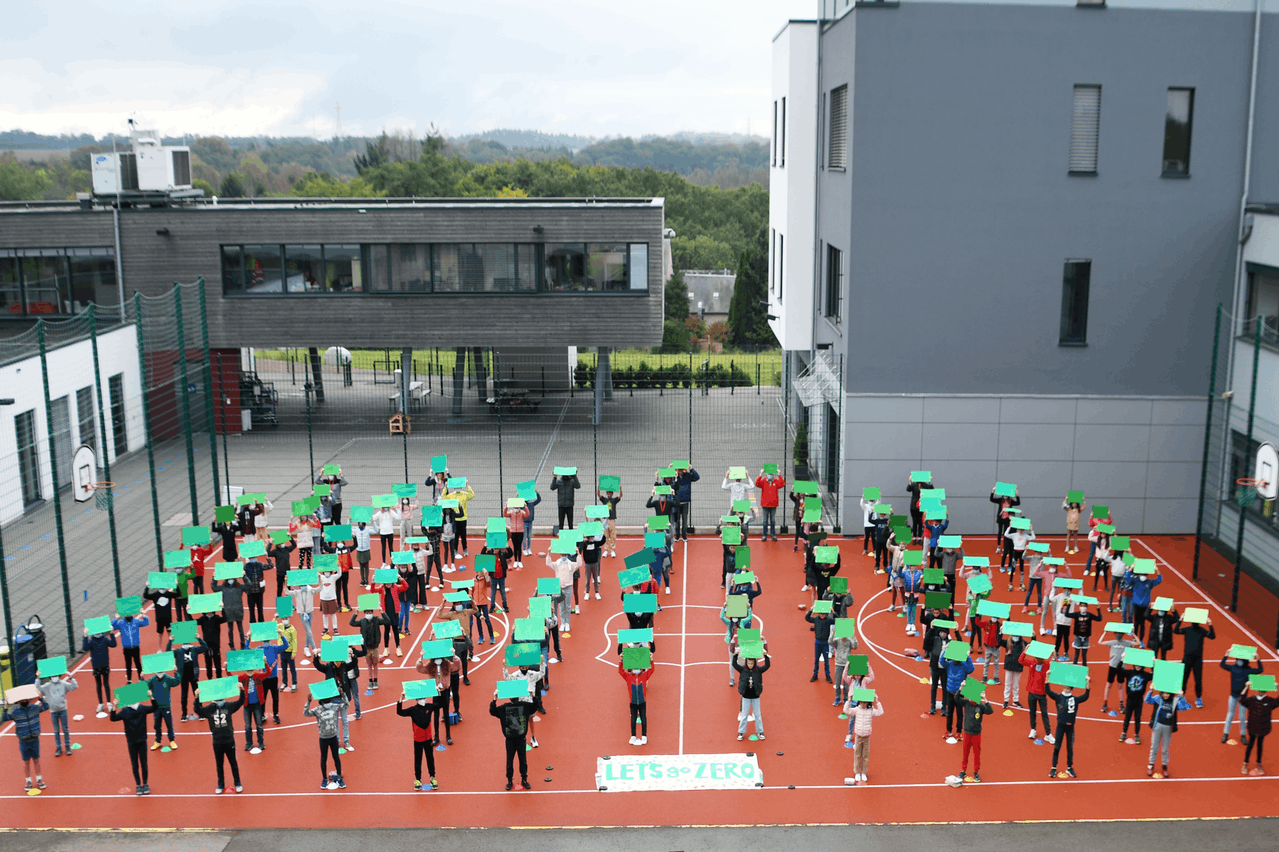The pledge is part of the school’s decarbonisation plan and will help to broaden student understanding of emissions, climate change and how everyone can make a difference.
St George’s Principal Dr Christian Barkei said the Climate Pledge aimed to significantly reduce the school’s emissions with a goal of net zero. This will promote and support the EU 2030 Climate Target Plan and the Paris 2050 targets ahead of the UN’s COP26 climate change conference in Glasgow, UK, in November.
Dr Barkei said the students and staff planned to achieve their goal through projects to reduce and offset greenhouse gas emissions, including reducing school traffic, assisting with reforestation programmes, green procurement, weekly meat-free days in the canteen and more.
“Everyone can make a difference – and these little daily differences in behaviour and consumption can be straightforward and simple, but they do add up to substantial and lasting change,” Dr Barkei said.
The pledge has been driven by St George’s Sustainability Coordinator Anne-Marie McHugh with the assistance of the school’s Climate Action students and staff across Primary and Secondary.
“Our students are well informed about climate change and their future, and they regularly ask staff what can be done to tackle climate change,” Ms McHugh said. “The School Climate Pledge is about empowering our students by creating a platform that promotes a school environment that is more sustainable. We believe this will help our students innovate new ways for positive change and prepare them for the future.”
St George’s estimates that it generates an average of 600 tonnes of greenhouse gas emissions per year through school services. It forecasts that more than 100 tonnes of emissions can be avoided over the next couple of years. For example, one meat-free day in the canteen can save 500kg of emissions. Choosing sustainable stationery can save 10kg per student per year and taking the bus or carpooling to school reduces emissions by 30 per cent per journey.
Minister for the Environment Carole Dieschbourg said the School Climate Pledge showed not only great commitment but provided the opportunity to engage students in climate action. “The involvement of students, their experiences and motivation to take action to make their school more sustainable is what makes this effort so remarkable. Harnessing the power of education to combat climate change is crucial, but only when knowledge is combined with a sense of connection and caring, climate action can follow,” she said.
The Climate Pledge provided an opportunity for British Ambassador Fleur Thomas to discuss COP26. “Fostering youth participation is key to achieving our climate goals and the St George’s International School Climate Pledge is a fine example of an enhanced local climate action to fight against climate change,” she said.
St George’s International School is an inclusive, vibrant international community of 875 students aged from 3 years to 18+ years, representing over 60 nationalities. This rich diversity provides a unique and exciting learning environment where strong values are nurtured based on mutual understanding and respect.
Fore more information, visit our website .
